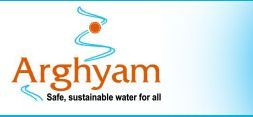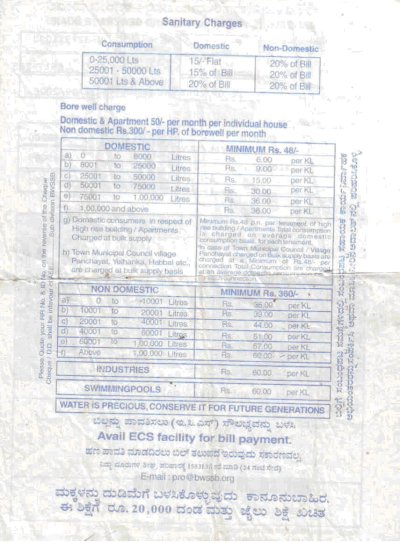/regions/bangalore-urban-and-rural-district
Bangalore Urban and Rural District
Workshop on how to save the lakes of Bangalore, Bangalore Environment Trust, Bangalore
Posted on 01 Jul, 2009 02:34 AM(Jointly organised by Bangalore Environment Trust and ARGHYAM) On 4 July 2009 at 1430h at the RAMAN RESEARCH INSTITUTE 
 Accor
Accor
"Exploring Environmental Education beyond the Classroom" - A workshop for teachers and educators, ESG, 9-11 July 2009, Bangalore
Posted on 05 Jun, 2009 01:55 AMImage and Content Courtesy:ESG India  This workshop for teachers organized at the ESG Office, from 9th, to11th July 2009will provide the opportunity to find new skills and share what has worked and what needs to change. This is a workshop for enthusiastic teachers, and coordinators and facilitators of education programmes with a passion for educating and motivating kids. It aims to help young professionals develop their skills and knowledge so they can inspire children and others more effectively.
This workshop for teachers organized at the ESG Office, from 9th, to11th July 2009will provide the opportunity to find new skills and share what has worked and what needs to change. This is a workshop for enthusiastic teachers, and coordinators and facilitators of education programmes with a passion for educating and motivating kids. It aims to help young professionals develop their skills and knowledge so they can inspire children and others more effectively.
The purpose of the workshop is to demonstrate to the teachers and educators how the outdoors can be utilized to introduce, strengthen, and emphasize concepts of the environmental education curriculum. Through classroom sessions, games and field studies, we will explore the curriculum, teaching techniques, and classroom activities that can help kids learn about the wonders of nature and their environment. During the workshop we will help identify some simple methods and techniques for teaching environmental education in the outdoors and the workshop will also familiarize the participants with some of the environmental issues of Bengaluru.
Water security for residents of apartments & gated communities in Bangalore - An article by SS Ranganathan
Posted on 29 May, 2009 04:27 PMMr. S.S. Ranganathan, author of this guest post, is a retired senior executive of Ion Exchange and currently a consultant based in Bangalore.
He can be reached at: ss.ranganathan@gmail.com , +91-9343734229
WATER SECURITY FOR THE RESIDENTS OF APARTMENTS & GATED COMMUNITIES - S.S.Ranganathan
Ashok Leyland, Bangalore, undertakes water related corporate initiative (2007)
Posted on 27 May, 2009 01:28 PMAshok Leyland, India's second largest commercial vehicle manufacturer, has worked on both technical process water use reductions and water related project area CSR initiatives.
IAPMO and Indian Plumbing Association roll out plumbing education to employment program
Posted on 25 May, 2009 12:18 PMForwarded to the Portal by: Arun Tharakan
"90 % of the Plumbing industry workforce in India not professionally trained" "Lack of professionally trained plumbers a major drawback for country's construction sector"
The lack of plumbing infrastructure and a trained, certified workforce has long plagued the citizens of India, for whom 7.5 percent of deaths each year can be directly attributed to water and sanitation issues. In response, International Association of Plumbing and Mechanical Engineers(IAPMO) is working with the Indian Plumbing Association (IPA) and its training arm, the Indian Institute of Plumbing (IIP), to help the nation make big strides forward in both areas of need. IAPMO- Having already jointly developed the Uniform Plumbing Code-India (UPC-I), an extensive code of plumbing practice (published in February 2008) that will serve the construction sector in India for years to come, the organizations subsequently turned their focus to education and training. The ambitious Plumbing Education to Employment Program-PEEP is a comprehensive industry focused program with structured courses of study to develop plumbing design engineers, plumbing construction managers/supervisors and plumbing installers/repairers.
Job opening: Research coordinator, Arghyam
Posted on 16 May, 2009 05:24 AM Arghyam Trust based in Bangalore, (www.arghyam.org) focuses solely on water and sanitation with an emphasis on domestic water. We are looking to employ a young dynamic person to be a core member of a new Research & Developmentgroup.
Arghyam Trust based in Bangalore, (www.arghyam.org) focuses solely on water and sanitation with an emphasis on domestic water. We are looking to employ a young dynamic person to be a core member of a new Research & Developmentgroup.
Drinking water access in Bangalore through the framework of human rights: a PhD dissertation
Posted on 12 May, 2009 04:55 PMThis PhD dissertation by Jenny T Gronwall for Linkoping University's Tema Institute looks at issues of drinking water access in Bangalore through the framework of human rights, analyzing three interlinked dimensions: the right to water as a human right; water in terms of property rights; and water rights.
Environment action plan for the city by Bangalore water supply and sewerage board
Posted on 11 May, 2009 12:38 PMThis presentation by the Bangalore Water Supply and Sewerage Board deals with the Environment Action Plan (Part – B) for Bangalore. The presentation begins with a description of the drainage pattern of the city and the major rivers in and around it. The objectives of the EAP are set out as –
- Stopping flow of raw sewage into storm water drains.
- Achieving zero discharge of raw sewage into drains.
- Conveying sewage to treatment plants and treating to meet standards.
- Improving environment.
- Improving socio-economic status.
Using GIS in water management system: case study of Bangalore Water Supply and Sewerage Board
Posted on 11 May, 2009 12:30 PMBangalore Water Supply and Sewerage Board (BWSSB) moved forward on developing a GIS in 1998-99 and along with other civic bodies of Bangalore (BDA , BMP, BESCOM and others) pooled resources for obtaining aerial photography and photogrammetrically compiled base map covering an area of 290 Sq Kms of Ban
